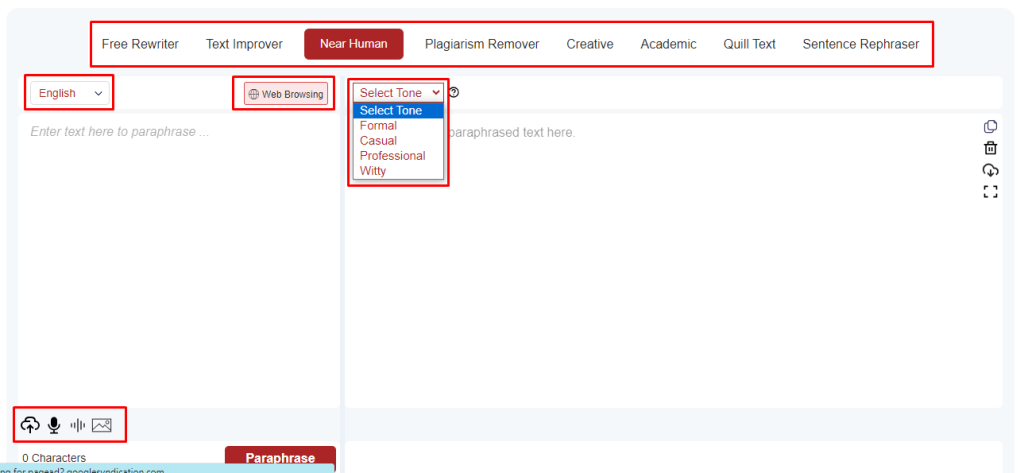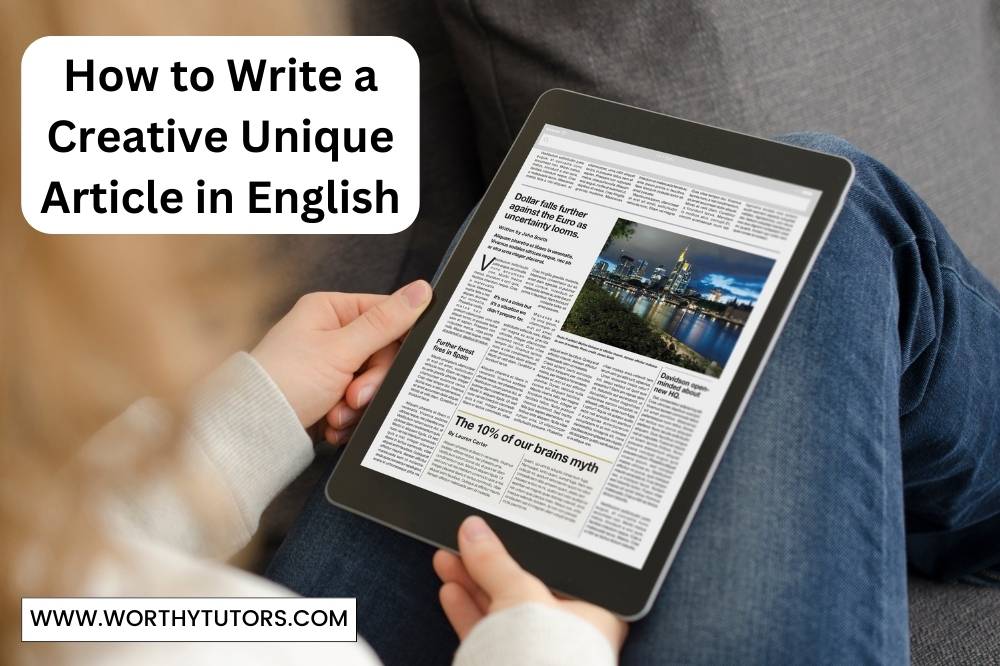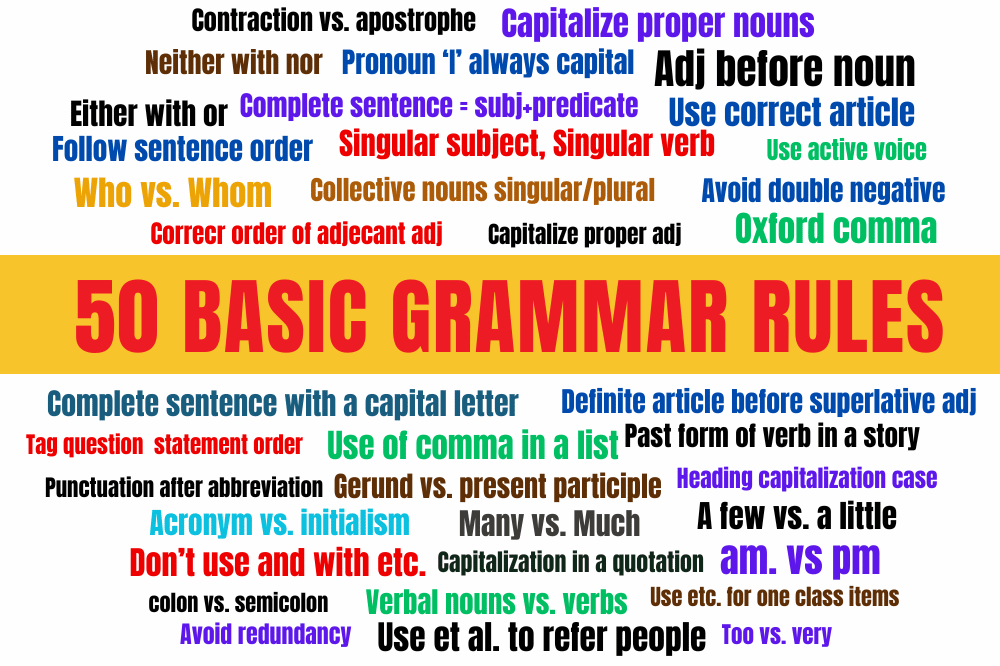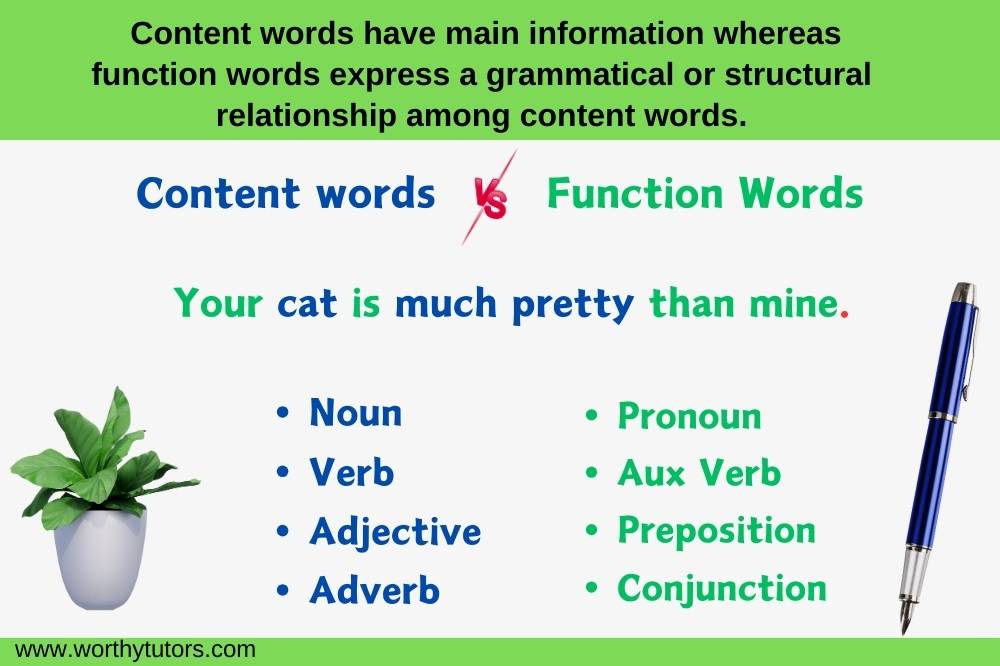
Creative content marketing is one of the leading fields nowadays. Businesses, journalists, bloggers, and freelancers, demand unique content to stay in the competition and grab their audience.
Fulfilling this rising demand can be difficult for writers. As suggested by the Writing Experts, I have compiled some amazing tips to learn you write creatively.
One of these tips is the “use of paraphrasing tools” that will literary make your writing fast and better. Let’s begin with understanding what creative writing is and its types.
What is Creative Writing?
“Creative writing is to comfort the disturbed, and disturb the comfortable”
In creative writing, the writers use the power of their imagination to convey distinctive ideas. It encompasses diverse genres such as poetry, screenwriting, fiction, and creative nonfiction.
The aim is to captivate the readers by presenting the stories, feelings, or ideas in the most natural way. Creative writing is based on the ollowing elements:
- Visualization converted into words
- Plot & character development
- Imaginative language
- Emotional appeal & dialogues
Types of Creative Writing
Creative writing is different from factual and academic writing which is based on facts. Creative writers use idioms, figurative language, phrases, etc. to inspire their readers with their words.
A creative piece of writing may be of the following types:
- Poetry
- Non-fictional narratives
- Novels
- Storybooks
- Autobiographies & Memoirs
5 Tips to Boost Creative Writing Skills
By practicing the following 5 tips in your creative writing routine, you can improve your writing:
1. Have a Perspective
Your perspective of writing something is the lens through which you view the world. It shapes the way you express your thoughts and ideas.
Explore your personal interests and draw inspiration from them. The writers can infuse their work with a childhood memory, a philosophical musing, a moment of epiphany, etc. It will add depth and authenticity to your writing.
PS: Don’t shy away from unconventional viewpoints; they can lead to innovative and thought-provoking pieces.
2. Develop a Habit of Reading
“Reading is the fuel that ignites creativity.”
Writers should take benefit of a wide array of literature, including novels, poetry, essays, and articles to broaden their knowledge and vocabulary.
Reading will expose you to diverse writing styles, storytelling techniques, and language usage. As you read, reflect on how the words evoke emotions and imagery.
Moreover, reading not only enhances your vocabulary but also sparks new ideas and perspectives. It’s a continuous learning process that keeps your creativity flowing.
3. Write Down Your Ideas & Don’t Copy Others
Creativity flows in mysterious ways, and ideas can strike at any moment. Be prepared to capture these fleeting moments of inspiration by keeping a notebook or digital document handy.
Jot down your thoughts, concepts, and even snippets of dialogue as they come to you. Remember, originality is paramount in creative writing, so avoid copying others’ work.
Take benefit of your observations, experiences, and imagination to craft fresh and compelling narratives that are uniquely yours.
It is good to take inspiration from other writers, but always add your distinctive touch to create something fresh and innovative.
4. Use AI Paraphrasing Tools
AI Paraphrasing Tools are equipped with Natural Language Processing techniques and Machine Learning algorithms to rewrite the existing content.
By adding synonyms, altering sentence structures, and simplifying complex sentences, paraphrasers make the content unique and engaging.
However, not all paraphrase tools are the same. For creative writing, you need a rephraser that has multiple paraphrasing modes, rewriting tones, and provides alternatives to sentences.
Paraphrasingtool.ai fulfills the above requirements, therefore, is recommended to writers to improve their writing skills.

5. Keep Your Audience in Mind While Writing
Understanding your audience is crucial in creative writing. Consider who your readers are and what they seek from your writing.
Tailoring your content to suit your target audience ensures that your work resonates with them on a deeper level.
Keeping your audience in mind allows you to forge a strong connection with the readers, making your writing more impactful and engaging.
Pro Tip: Revising, Editing, & Proofreading are the Biggest Secrets
“Writing is a process, and refining your work is crucial to elevate it to its full potential.”
During the revision stage, focus on the overall structure and coherence of your story. Evaluate the pacing, character development, and plot arcs to ensure a compelling narrative flow. Look for any plot holes or inconsistencies that might weaken the impact of your work.
Editing involves scrutinizing the language and style of your writing. Pay attention to sentence structure, grammar, and word choice. Eliminate unnecessary words and phrases to enhance clarity and conciseness.
Proofreading is the final step to polish your work. Look for spelling mistakes, punctuation errors, and typos. Even the smallest oversight can distract readers from the brilliance of your writing, so meticulous proofreading is crucial.
Conclusion:
At the end of today’s discussion here, I want to compile the whole discussion as “to be creative in writing, the 5 tips including a unique perspective, reading habit, embracing your ideas, using AI paraphrasing tools wisely, and understanding your audience are the secrets.”
By following these tips, you can boost your creative potential and produce writing that captivates, inspires, and leaves a lasting impression on your readers.
You are welcome to share your personal experience or precious ideas to add to this article.


